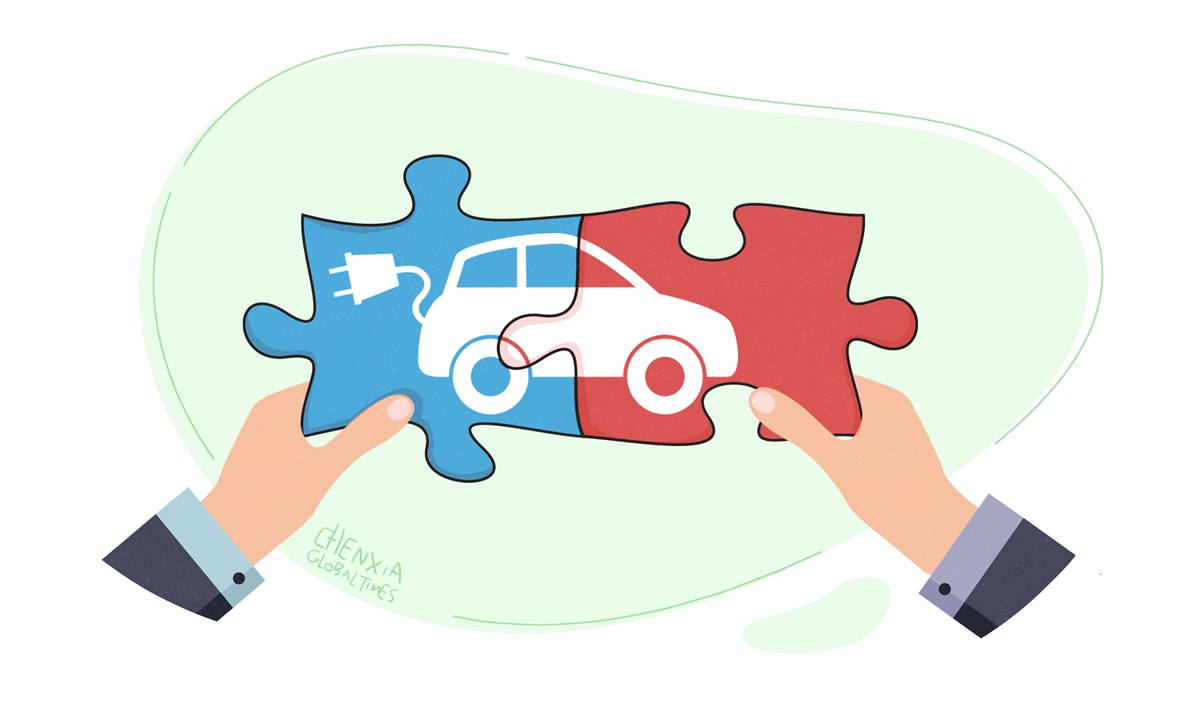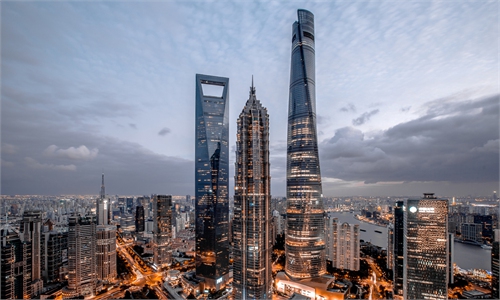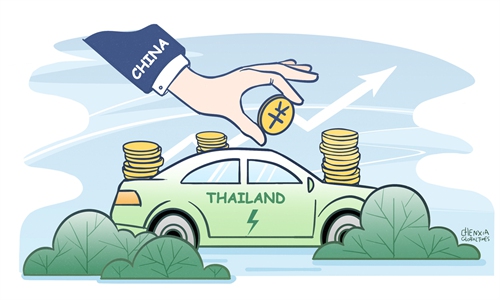Munich Auto Show underscores vast opportunities for China-EU EV industry cooperation

Illustration: Chen Xia/Global Times
At the 2023 Munich Auto Show, also known as the 2023 IAA Mobility Show, which is being held from September 5 to 10, the presence of some 70 Chinese companies, the second largest number after German participants, makes European industry professionals to review the rapid development of China's electric vehicle (EV) industry. Chinese cars have starred at the Munich Auto Show, and some executives are using a new catchphrase to describe how quickly they need to catch up with "China speed," the New York Times reported.German auto manufacturers have represented cutting-edge automotive technology for decades, but now an increasing number of industrial observers have realized that the landscape of the industry has changed dramatically. Some industry observers said that the Europeans are petrified of how Chinese brands will perform in Europe. Industry analyst Ferdinand Dudenhoeffer from the Center Automotive Research in Germany said that the Munich Auto Show is a "turning point" for the industry.
However, it is regrettable that, for the rapid development of China's EV industry, public opinion in Europe and the West currently shows more anxiety and hostility. Some Western media commentators have described the rapid development of China's EV industry not as a miracle but as "sham." There are even sensational headlines claiming that "China's EV army will invade Europe."
It must be pointed out that this kind of voices is extremely dangerous for the development of the European auto industry. Partly influenced by the US' rising subsidy policy, the voice of protectionism in Europe is also rising. Hopefully, Europe will not follow the wrong path of protectionism.
What the Munich Auto Show reflects is the inevitable trend shaped by market rules amid green transition of auto industry. Boosted by both market and policy advantages, China's burgeoning EV industry has also brought great opportunities for the market participants from all over the world. To embrace the win-win cooperation opportunities while rationally managing the competition is the right choice for European auto brands that had established superiority but also grappling with the pains coming with the industry's transition.
Protectionism is a flawed strategy rather than a solution. As it turns out, the protectionist policies add uncertainty rather than a boost to a country's EV ambition. The US EV subsidy policy, which has caused wide backlash from global EV industry, is an example. EU should draw the lesson from the US' failed approach.
The "Inflation Reduction Act," which contains EV subsidy policies adopted by the US government last year, was strongly resisted by the EU, Japan, and South Korea as soon as it was introduced, and was accused of "harming others and not benefiting itself." According to recent reports in the US media, although the US government has allocated $2 billion to accelerate the development of domestic EV manufacturing, the results were not satisfactory.
In stark contrast, the reason why China's EV industry has achieved such a rapid development is because China actively participates in international market competition and promotes global openness and cooperation. China is proactively promoting the smooth flow of resource elements and building an organically coordinated, stable and efficient global industrial chain and supply chain system.
There is vast space for cooperation between China and Europe in the field of EV, such as promoting Chinese manufacturers to set up factories in Europe. To fully tap into the potential of the transition of global auto industry, it requires more exchanges and consultations between China and Europe. Europe should exclude the disruption of the protectionism.
Moreover, although China's EV industry is developing rapidly and the competition in the Chinese automobile market is at an unprecedented level, German car still occupy a large share in the Chinese market, especially in the field of traditional fuel-engine vehicles. Therefore, open competition and cooperation are the direction for the future development of the automobile industries of both parties.
At the end of July, Volkswagen, Germany's largest car company, spent $700 million to acquire 4.99 percent of the shares of Xpeng Motors, a new Chinese new-energy vehicle manufacturing company, to reach a strategic cooperation and jointly develop EV products. On July 20, SAIC Group said that SAIC and German auto giant Audi had reached a consensus to accelerate the development of EV through cooperation.
Different from the one-way cooperation model of foreign companies exporting technology to China in the past few decades in the era of fuel-engine vehicles, Chinese EV brands are now integrating their advantages with established international car companies to achieve maximum development. These new cooperations are examples of the importance and necessity of China-EU economic and trade cooperation. This also represents the inevitable trend for global EV industry development.
The author is a reporter with the Global Times. bizopinion@globaltimes.com.cn



